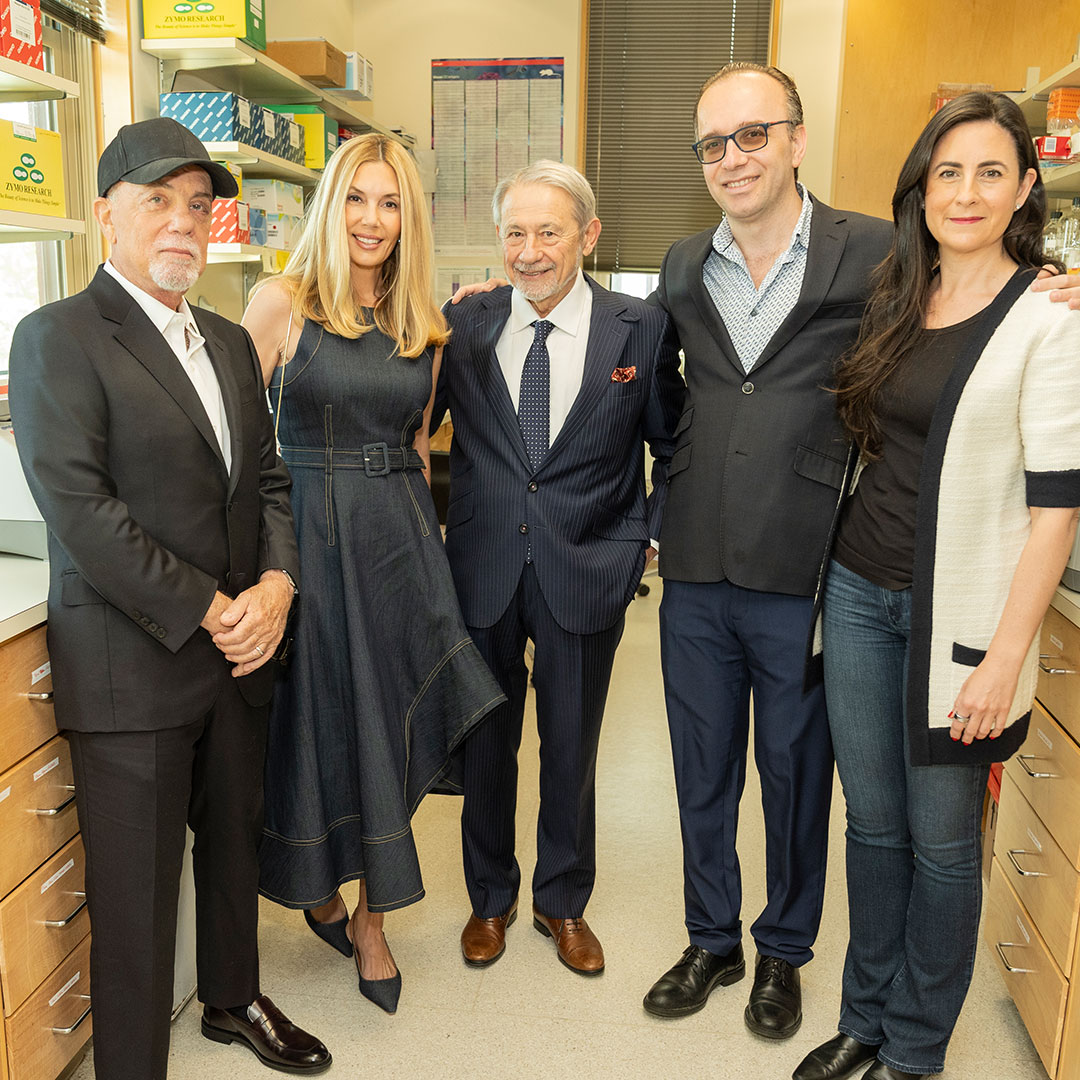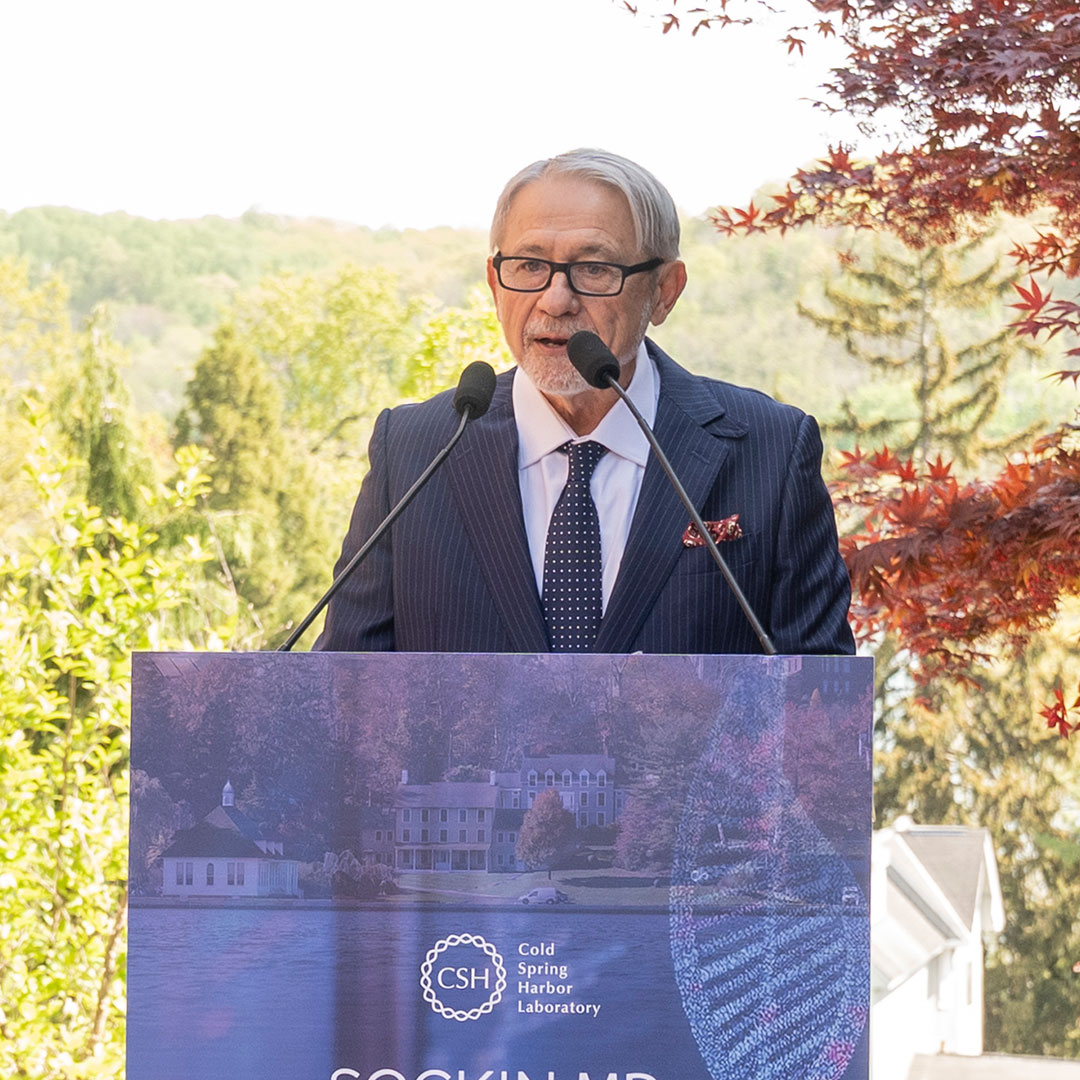Scientific Impact & Publications
A Historic Commitment to a Vastly Understudied Disease
The establishment of the Seckin Endometriosis Research Center for Women's Health at Cold Spring Harbor Laboratory (CSHL) marks a pivotal moment in the scientific community's approach to one of the most debilitating and widespread conditions affecting women globally. Endometriosis, a chronic and often agonizing disease, affects approximately 10% of women of reproductive age—an estimated 190 to 200 million individuals worldwide. This condition is defined by the growth of endometrial-like tissue outside of the uterus, leading to severe pelvic pain, fatigue, and infertility. Despite its profound prevalence and the immense suffering it causes, researchers have historically under-researched endometriosis, with scientists poorly understanding its molecular and cellular underpinnings. This limited understanding has resulted in a significant and long-standing unmet clinical need, characterized by substantial delays in diagnosis, which often requires invasive surgical procedures, and therapeutic strategies that are frequently inadequate or associated with significant side effects. This represents our core mission:
translating foundational science into clinical solutions.
The launch of the Seckin Endometriosis Research Center is a direct response to this critical research gap and represents a historic investment in women's health. It is the first dedicated endometriosis research center within a premier U.S. basic science institution. This unique positioning elevates endometriosis from an often-overlooked clinical issue to a central, high-priority problem for foundational, curiosity-driven bioscience. This strategic focus is designed to not only generate new knowledge but also to fundamentally change the scientific community's perception of the disease, attracting top-tier talent and catalyzing future research and funding efforts across the globe.
A landmark partnership between CSHL and the Endometriosis Foundation of America (EndoFound) made this transformative initiative possible. This collaboration is powered by a momentous $20 million total commitment, which includes a $10 million commitment from EndoFound that they will raise, and a matching $10 million gift from CSHL Board Chair Marilyn Simons, PhD. This unprecedented $20 million investment will fund 10 years of breakthrough science, providing the state-of-the-art resources and long-term stability required to conduct groundbreaking, large-scale, and interdisciplinary research into the disease. The Center is named in honor of Dr. Tamer Seckin, a world-renowned endometriosis surgeon, founder of the Seckin Endometriosis Center, and co-founder and president of EndoFound. The inclusion of a leading clinician in the Center's namesake and mission signifies a deliberate and powerful synergy between foundational laboratory research and clinical expertise. This partnership model ensures that the lived realities of patients always inform the scientific questions posed in the lab, and that every discovery is made with the ultimate goal of improving human health.
Core Scientific Contributions: Unraveling Endometriosis at the Molecular Level
At the core of the Seckin Endometriosis Research Center’s mission, researchers apply a "multi-pronged, state-of-the-art" research approach to decode the complex biological foundations of endometriosis. CSHL Assistant Professor Semir Beyaz leads the program, and his work centers on the intricate connections between genetics, metabolism, and the immune system in female reproductive health. His expertise provides a crucial framework for investigating a disease characterized by chronic inflammation and hormonal dependency. The Center’s major goal is to "interrogate the complex genetic and environmental determinants" of endometriosis , moving beyond descriptive analyses to uncover the precise cellular and molecular mechanisms driving the disease.
To achieve this, the Center has established an integrated research platform. Researchers employ a sophisticated toolkit of modern biological techniques to deconstruct the intricate "signaling circuits" that underlie disease progression. The specific methods we use include:
-
Genomic, Transcriptomic, and Epigenomic Profiling: We use these techniques to analyze genetic mutations, gene expression patterns (mRNA and non-coding RNA), and epigenetic changes (such as DNA methylation) that may alter cellular states in endometriosis. By integrating these layers of data, we gain a holistic view of the cellular machinery at work in both healthy and diseased tissues.
-
Metabolic Measurements and Biochemical Assays: This component investigates how the metabolic processes of cells are perturbed in the disease state. Since endometriosis is linked to inflammatory processes, understanding how cells generate and use energy in this environment is critical for identifying new vulnerabilities and therapeutic targets.
-
Microbiome Analyses: A rapidly emerging area of research, microbiome analysis allows investigators to explore the role of bacterial and other microbial communities that may influence the disease's progression. This adds another crucial dimension to our understanding of the environmental factors at play in endometriosis.
A cornerstone of the Center's scientific philosophy is our deliberate focus on human-relevant models. The Center anchors its research in patient-derived tissue specimens and organoid platforms. This strategic decision ensures that every mechanistic insight we generate is "rooted in human biology" and directly positions us to inform the discovery of biomarkers and therapeutic targets for the prevention, early diagnosis, and treatment of endometriosis. We are focused on
translating foundational science into clinical solutions. This patient-centric approach bypasses the traditional and often problematic reliance on animal models, which may not always accurately recapitulate human disease, thereby accelerating the path from fundamental discovery to clinical application. The strategic use of patient-derived models also directly addresses a major gap in the field, as historically, much of the molecular research on endometriosis has lacked access to a robust repository of human-derived samples. By creating a hub for human-centric data generation and innovation, we produce a resource that is not only of immense value to our own research but is also designed to serve the broader scientific community.
Landmark Publications and Foundational Discoveries
The application of this integrated, human-centric research model will yield foundational scientific knowledge that promises to redefine our understanding of endometriosis. The Center’s initial publications will represent tangible progress in decoding the complex biology of the disease, providing a blueprint for future therapeutic and diagnostic development.
The Influence on Patient Care and Future Therapeutics
The ultimate measure of the Seckin Endometriosis Research Center’s success will be our ability to translate foundational discoveries into tangible improvements in the lives of patients. Our research strategy is meticulously designed to directly target the most critical shortcomings in current endometriosis management, embodying our mission of translating foundational science into clinical solutions.
First, the Center’s research accelerates the discovery of diagnostic biomarkers, thereby addressing the significant issue of delayed diagnosis. Currently, to definitively diagnose endometriosis, clinicians often require invasive laparoscopic surgery. By identifying the specific molecular and cellular signatures of the disease, the Center is creating a resource that we can exploit to develop non-invasive diagnostic tools, such as blood tests or imaging markers. A less invasive, more accurate method of diagnosis would significantly reduce the "substantial delays" between symptom onset and confirmed diagnosis, alleviating years of suffering and uncertainty for millions of women worldwide.
Second, the Center focuses its work on identifying novel therapeutic targets. Current treatments are often limited in efficacy and can come with significant side effects. By pinpointing the precise molecular and cellular mechanisms of the disease, the Center provides new avenues for targeted drug development. This research is the crucial first step toward creating new pharmacological interventions that can restore endometrial function and alleviate symptoms with greater precision and effectiveness. The findings from the Center's research could also lead to the discovery of distinct disease subtypes, a critical step toward implementing precision medicine in endometriosis. This would allow for personalized treatment plans tailored to an individual’s specific disease profile, a radical departure from the current one-size-fits-all approach.
Finally, the Center’s pioneering model of clinical-scientific synergy is a powerful force for change. The collaboration between CSHL scientists and a leading clinical expert like Dr. Tamer Seckin ensures that all basic research is constantly informed by the needs and experiences of patients. Dr. Seckin's own groundbreaking work in developing a patented blue dye technique to help surgeons detect hidden lesions exemplifies the kind of innovation that can result from this direct connection between the lab and the operating room. This partnership ensures that the foundational discoveries we make at CSHL will have "significant implications for women's health" , paving the way for a future where we not only better understand endometriosis but also more effectively manage and, ultimately, conquer it.
External Resources & Further Reading
-
CSHL Endometriosis Research Center: https://www.cshl.edu/about-us/disease-funding-initiatives/endometriosis/
-
EndoFound Partnership News Release: https://www.cshl.edu/endometriosis-foundation-of-america-commits-10-million-to-cshl/
-
Seckin Endometriosis Research Center on EndoFound: https://www.endofound.org/endometriosis-foundation-of-america-and-cold-spring-harbor-laboratory-launch-20-million-seckin-endom
-
Dr. Semir Beyaz Faculty Profile: https://www.cshl.edu/research/faculty-staff/semir-beyaz/
A Legacy for the Future: The Seckin Endometriosis Research Center

The establishment of the Seckin Endometriosis Research Center for Women’s Health at Cold Spring Harbor Laboratory (CSHL) fulfills Dr. Seckin's career-long mission. Launched on April 30, 2025, this pioneering center became the first of its kind at a premier U.S. basic science institution to focus exclusively on endometriosis research. They named the center in his honor, and it directly extends his vision to apply world-class scientific tools to decode the disease's underlying mechanisms.
A combined $20 million investment supports this historic initiative, which includes a $10 million gift from the Endometriosis Foundation of America and a matching $10 million gift from CSHL Board Chair, Marilyn Simons, PhD. The center's mission is to advance research that moves beyond managing symptoms to finding the root cause of the disease. Dr. Seckin calls the center a "promise" that his work will continue with unprecedented resources, moving toward a future where a patient can receive a diagnosis without a scalpel.
Dr. Seckin is a faculty member and speaker at numerous scientific and medical symposia worldwide on topics related to endometriosis and advanced laparoscopic surgery. He authored two books for patients and doctors,
The Doctor Will See You Now: Recognizing and Treating Endometriosis and Endometriosis by Tamer Seckin, MD. First published in 2016 ,
The Doctor Will See You Now is considered one of the top three books for patients with endometriosis, with a revised edition set for publication in 2026. He has received multiple awards and recognitions, including the Ellis Island Medal of Honor in 2012, and the New York Times Magazine has named him a "Super Doctor" multiple times.
Tamer Seckin, MD

Dr. Tamer Seckin is an internationally renowned endometriosis specialist and a leading advocate for women's reproductive health. With more than 30 years of private practice at Lenox Hill Hospital, he has earned a reputation for his expertise in complex cases of deep infiltrating endometriosis of the pelvis and his mastery of advanced laparoscopic procedures. He dedicates himself to performing fertility-preserving surgeries, even in cases that involve the ovaries.
As one of the limited number of accredited gynecologic surgeons in the United States with advanced training for deep excision of endometriosis, Dr. Seckin pioneers the field. He developed patented surgical techniques, most notably the “Aqua Blue Excision” technique, which uses a patented blue dye to provide clearer visualization and identification of subtle, non-pigmented endometriosis lesions that other surgeons often miss. He bases his surgical philosophy on precision and microsurgery, focusing on organ and fertility preservation and the prevention of adhesion and pain.
In 2009, Dr. Seckin co-founded the Endometriosis Foundation of America (EndoFound) with his patient, the American author, actress, model, and television host Padma Lakshmi. As a practicing physician, he organized the first advocacy foundation of its kind to raise awareness and emphasize the critical value of early diagnosis and surgical excision. He continues to guide the foundation’s mission to increase disease recognition, provide advocacy, facilitate expert surgical training, and fund landmark endometriosis research. The foundation has since grown to become a voice for millions of women whose suffering has gone unheard and unrecognized.

